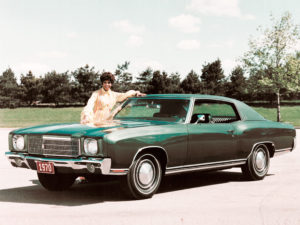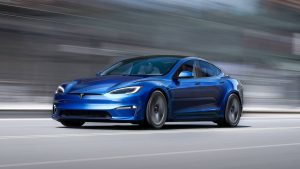Each year Ford Motor Company releases the results of its survey, called the Ford Trend Report, detailing the global trends consumers are facing. The findings are meant to help influence the way automakers, and other companies, understand the consumers they are targeting.
In its 2020 Looking Further with Ford Trend Report,
the company’s eighth annual publication of the kind, shows that the trend story has shifted from a concentration on shared ownership and community to isolation, loneliness, and distrust.“The rate of change globally has been on the rise – and without the trust in the institutions, brands and peers to rely on, a majority of people are feeling extremely overwhelmed,” said Sheryl Connelly, Global Consumer Trends and Futuring Manager, Ford Motor Company. “Consumers want to believe that companies are doing the right thing, but companies also need to give them a clear reason to do so. At Ford, we remain deeply focused on improving the lives of consumers and their communities, so we can continue to have a trusted relationship that moves us forward together.”
To achieve the survey results, Harris insights & Analytics polled 13,003 adults ages 18 years and older from 14 countries including Australia, Brazil, Canada, China, France, Germany, India, Italy, Mexico, Saudi Arabia, Spain, United Arab Emirates, the United Kingdom and the United States. Respondents from Saudi Arabia and United Arab Emirates were required to be nationals of their respective countries. All fieldwork took place between November 8 and November 16, 2019.
A number of trends emerged, which Ford has broken down into seven main categories:
- All Alone – Loneliness has become an epidemic of global proportions. Loneliness is particularly prevalent among young people – 62 percent of Gen Zers globally agree with the statement “I feel lonely on a regular basis” and 50% agree “I often feel lonely when I’m around other people.”
- Below the Surface – There’s growing interest in the unseen elements of building consumer trust. Consumers want to believe that companies are doing the right thing but they need to see behind the curtain to believe it. 67 percent of adults globally agree that “Once a brand loses my trust, there is no getting it back.”
- Call to Stand – People are asking brands to move from a product-based mindset to a values-based mindset – although it doesn’t always impact their decision to buy: 59 percent of adults globally say they care more about purchase convenience than brand values.
- Great Expectations – As internet commerce grows, so do expectations for brands. 67% of adults globally agree with the statement “I have higher expectations for brands than I did in the past.”
- The Green Paradox – Worldwide, consumers are increasingly worried about climate change. Yet, that worry isn’t translating into urgency: 64 percent of people who aren’t changing their behavior to help fight climate change say they think they can’t make a difference.
- Identity Matters – Conversations and language around identity are evolving — more specifically, understanding that identities are built from both visible attributes and invisible ones, like sexual identity, ancestry, religion and more. Only 67 percent of adults globally say “I understand the concept of gender fluidity.”
- The Second Time Around – New upcycle companies around the globe have modernized resale shopping. The so-called re-commerce movement is on the rise for sophisticated and market-savvy shoppers, breathing new life into previously owned fashion pieces, appliances, electronics, household items and other goods — and more and more consumers are opting in. 60 percent of adults globally agree “I am more open to buying used goods than I was five years ago.”








